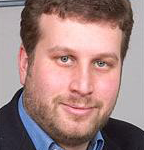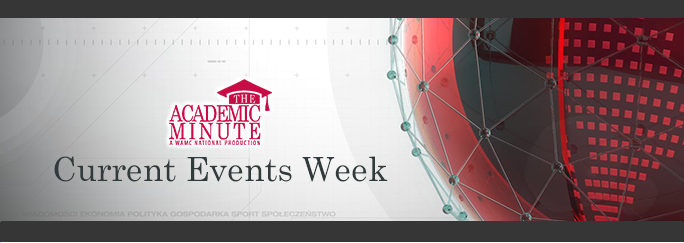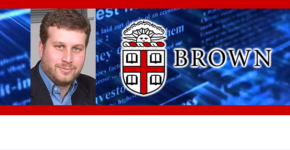 The travel ban has been a big topic in the news.
The travel ban has been a big topic in the news.
Corey Brettschneider, professor of political science at Brown University, discusses whether the ban is legal.
Corey Brettschneider is professor of political science at Brown University, where he teaches courses in constitutional law and political theory. He is currently also a visiting professor at the University of Chicago Law School. Brettschneider was a visiting professor at Fordham Law School, a Rockefeller faculty fellow at the Princeton University Center for Human Values, a visiting associate professor at Harvard Law School, and a faculty fellow at Harvard’s Safra Center for Ethics. Brettschneider received a PhD in politics from Princeton University and a JD from Stanford University. He is the author of When the State Speaks, What Should it Say? How Democracies Can Protect Expression and Promote Equality (Princeton University Press, 2012) and Democratic Rights: The Substance of Self-Government (Princeton University Press, 2007). These books have been the subject of several journal symposia, including one most recently published in the Brooklyn Law Review. Brettschneider is also the author of a casebook, Constitutional Law and American Democracy: Cases and Readings (Aspen Publishers/Wolters Kluwer Law and Business, 2011). His articles include “Sovereign and State: A Democratic Theory of Sovereign Immunity,” forthcoming in Texas Law Review; “Value Democracy as the Basis for Viewpoint Neutrality,” in Northwestern Law Review (2013); “A Transformative Theory of Religious Freedom,” in Political Theory (2010); “When the State Speaks, What Should it Say? Democratic Persuasion and the Freedom of Expression,” in Perspectives on Politics (2010); and “The Politics of the Personal: A Liberal Approach,” in the American Political Science Review (2007).

Travel Ban Legality
Lawyers defending Donald Trump’s executive order banning immigration from six Muslim majority countries claim it is constitutional.
They have an ancient and anachronistic case on their side.
In Chae Chan Ping, handed down in 1889, the court held that the Chinese Exclusion Act – which prohibited Chinese nationals, including former U.S. residents, from entering the country – did not violate the Constitution because the power of Congress and the president over immigration is “plenary” or absolute.
But use of the Chae Chan Ping precedent is problematic because the case occurred well before the development of contemporary Equal Protection Law. In 1889, that Clause did not yet apply to the federal government. In fact, many of the same justices that decided Chae Chan Ping also decided the notoriously flawed Plessy v. Ferguson case (1896), holding that separate was equal, a case that was eventually overturned in the seminal Brown v. Board of Education decision.
Recent case law makes clear that intentional discrimination based on religion is a violation of the Equal Protection Clause and the guarantee of Free Exercise of religion. While Trump’s seemingly neutral order also strains to avoid mentioning religion, all the lawyerly scrubbing in the world will not remove its stain of religious discrimination. Trump’s own statements and those of Rudolph Giuliani, which reveal an attempt to find a neutral way to mask an intentional ban on Muslim immigration.
The simple fact is that the immigration ban puts Trump on very shaky legal ground. Fundamental to all this talk about constitutional clauses and case law is one core principle: The U.S. government and it’s Constitution do not allow descrimination based on race or religion.

Comments
One response to “Corey Brettschneider, Brown University – Travel Ban Legality”
Although I agree with the position taken, it’s disappointing to see a piece with so many blatant errors published in IHE: the last sentence of the penultimate paragraph is not one; “it’s Constitution”; and “descrimination.” The author and/or editor should take another minute to proofread the Academic Minute.